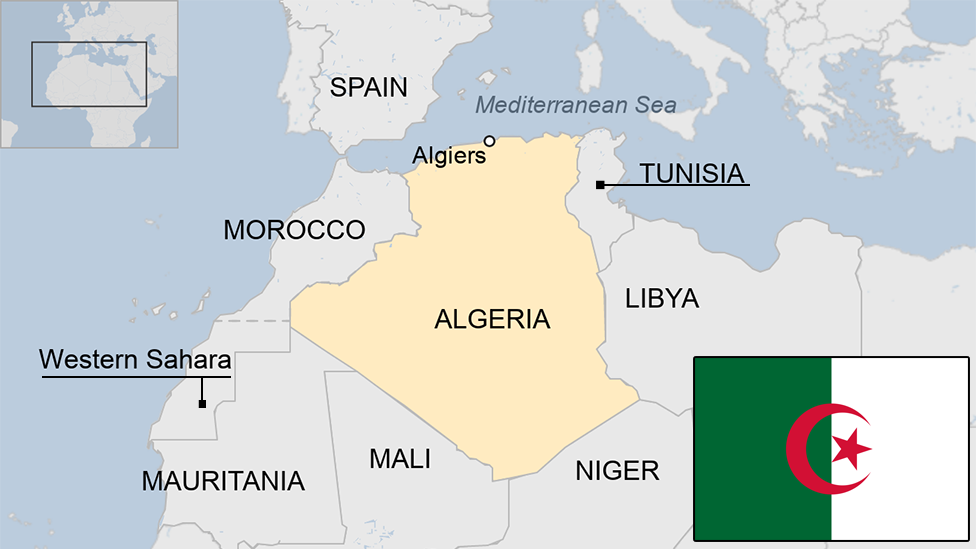Q&A: Algerian parliamentary elections
- Published
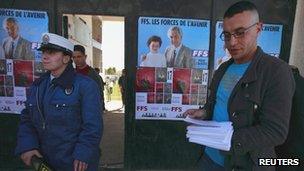
The Socialist Forces Front (FFS) party is taking part for the first time in 15 years
Algerians go to the polls on 10 May to vote in parliamentary elections which the authorities have billed as more free and transparent than ever before and which they say are part of a gradual, managed transition towards democracy.
Under pressure to reform after last year's "Arab Spring" revolts in neighbouring countries, President Abdelaziz Bouteflika approved the establishment of 23 new political parties and an increase in the number of seats in parliament.
The official slogan of the election, repeated in commercials running on state television, is: "Algeria is our spring."
Who can vote?
What will they be voting for?
What about women?
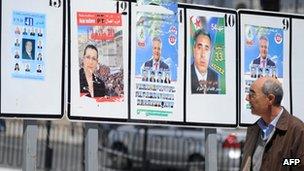
Algeria goes to the polls on 10 May
What is the significance of the vote?
What is the turnout likely to be?
Who is calling for a boycott?
Which parties are likely to do well?
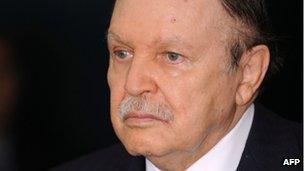
President Abdelaziz Bouteflika won a landslide election victory in 2009
Who is supervising the vote?
What about foreign observers?
What happened in previous elections?
Party profiles
National Liberation Front (FLN)
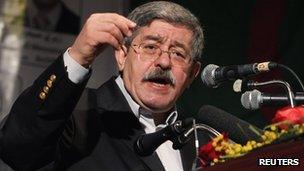
Prime Minister Ouyahia leads the National Democratic Rally party
The FLN was the movement which fought French colonial rule. After independence in 1962, it ruled in a one-party system, coming to be known as "the state within the state". It is part of the ruling presidential alliance together with the National Democratic Rally (RND). President Bouteflika is honorary chairman of the FLN and most government ministers are members.
National Democratic Rally (RND)
The RND is led by Prime Minister Ahmed Ouyahia and is part of the ruling presidential alliance. It is well represented among the administration and the business world. In its manifesto, the party urges voters "to work together for the preservation of a united Algeria''.
Green Algeria Coalition
The bloc was formed in early 2012 and says it is confident of winning a majority of seats in parliament, after which its priorities will include the drafting of a new constitution for ''a democratic and social sovereign Algerian state, respecting Islamic values". The Algerian paper Liberte said that ''even if they pretend to present a system of governance based on equal opportunity and social justice to allow social and economic development, the leaders of the alliance want only to build an Islamic state and to apply Sharia [Islamic law].''
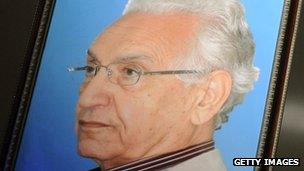
FFS founder Hocine Ait Ahmed has been in exile in Switzerland for decades
Socialist Forces Front (FFS)
The Socialist Forces Front (FFS), one of the biggest opposition parties, is taking part after boycotting all national elections for the past 15 years. It was founded in 1963 by Hocine Ait Ahmed to protest at the one-party system. Since multi-party politics were introduced in 1989, the opposition has systematically charged elections were rigged by the ruling party. The party said that by taking part in the poll it was "continuing the political, peaceful and people's fight for political, economic, social and cultural rights".
BBC Monitoring, externalselects and translates news from radio, television, press, news agencies and the internet from 150 countries in more than 70 languages. It is based in Caversham, UK, and has several bureaux abroad. For more reports from BBC Monitoring, click here
- Published9 September 2024
